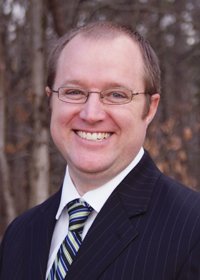
Journal Notes—September 2016
by Michael Hamline, Editor/ Published September 2016

If you’re like me, it has been a lot of fun to watch the Olympics in the month of August. I am amazed at what the human body is capable of accomplishing from an athletic standpoint, and I love seeing the hard work and sacrifices these athletes make to be at peak performance pay off with a gold, silver, or bronze medal. As an American, it has been a joy to watch Katie Ledecky, Simone Manuel, Ryan Lochte, Simone Biles, Aly Raisman, David Boudia and Steele Johnson, and others give their all and find themselves on the podium receiving one or more Olympic medals.
However, I must admit that my all-time favorite Olympic athlete to watch is Michael Phelps due to the fact that he is 31-years old (old by Olympic standards) and that with four consecutive gold medals in the Rio Olympics, he is proving that he is still at the top of his game. As I’ve read up on him and listened to his interviews, it is clear that his success has come from a lot of discipline in his eating and training regimen and sacrifices to limit his engagement with activities that would take away from his focus on winning at the Rio Olympics.
What do the Olympics and Michael Phelps have to do with community associations—and more specifically with boards of directors—you may be asking yourselves? Well, just as the aforementioned Olympic champions did not receive their medals without a lot of blood, sweat, and tears, a board member who excels at carrying out his/her fiduciary duty well and adding value to the community does not accomplish this without hard work, sacrifice, and persistence.
This September issue of FLCAJ is “The Board Reference Issue.” While one particular issue of a trade journal cannot even come close to covering all the topics a board of directors in a community association needs to know about, this issue is a vital tool to help boards of directors get started. The articles in this September issue can be compared to part of a diet and training regimen that will set each board member on a path to “Olympic victory.” However, it will take diligence to read the articles and to evaluate the strengths and weaknesses of your community in light of what is being said; it will require sacrifices to pursue the necessary changes to make your community, as much as possible, the best place to live.
Editor

